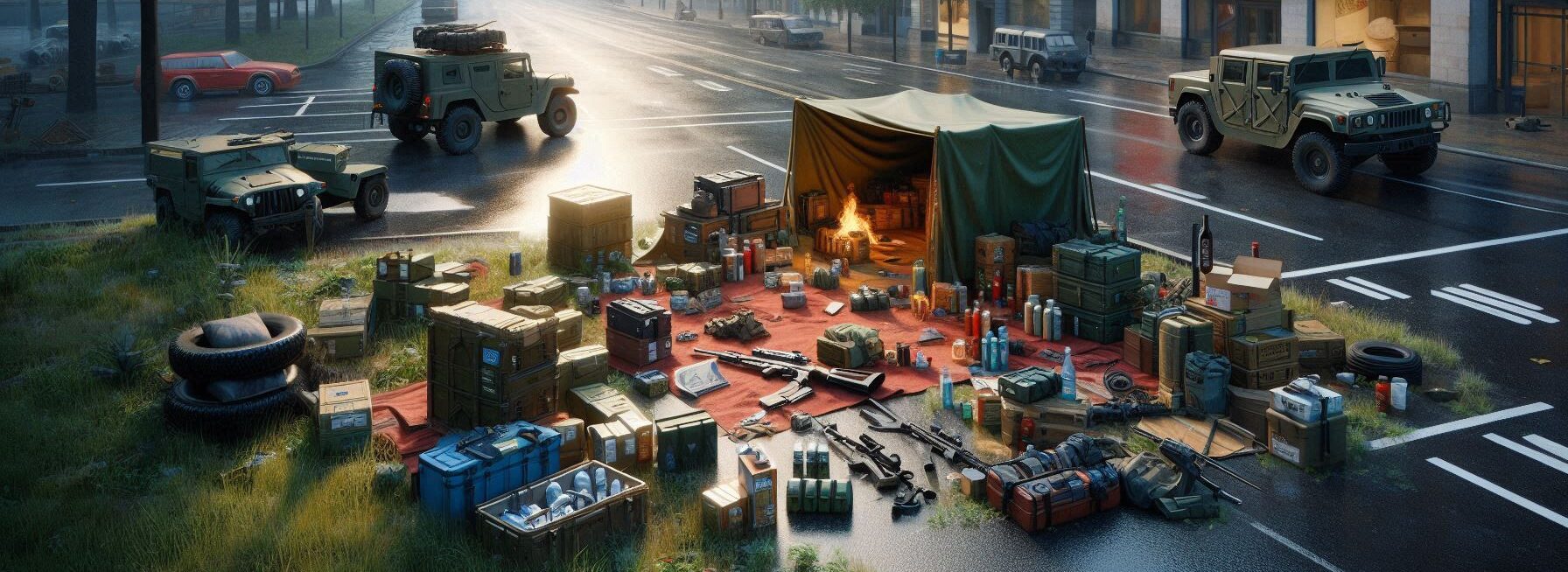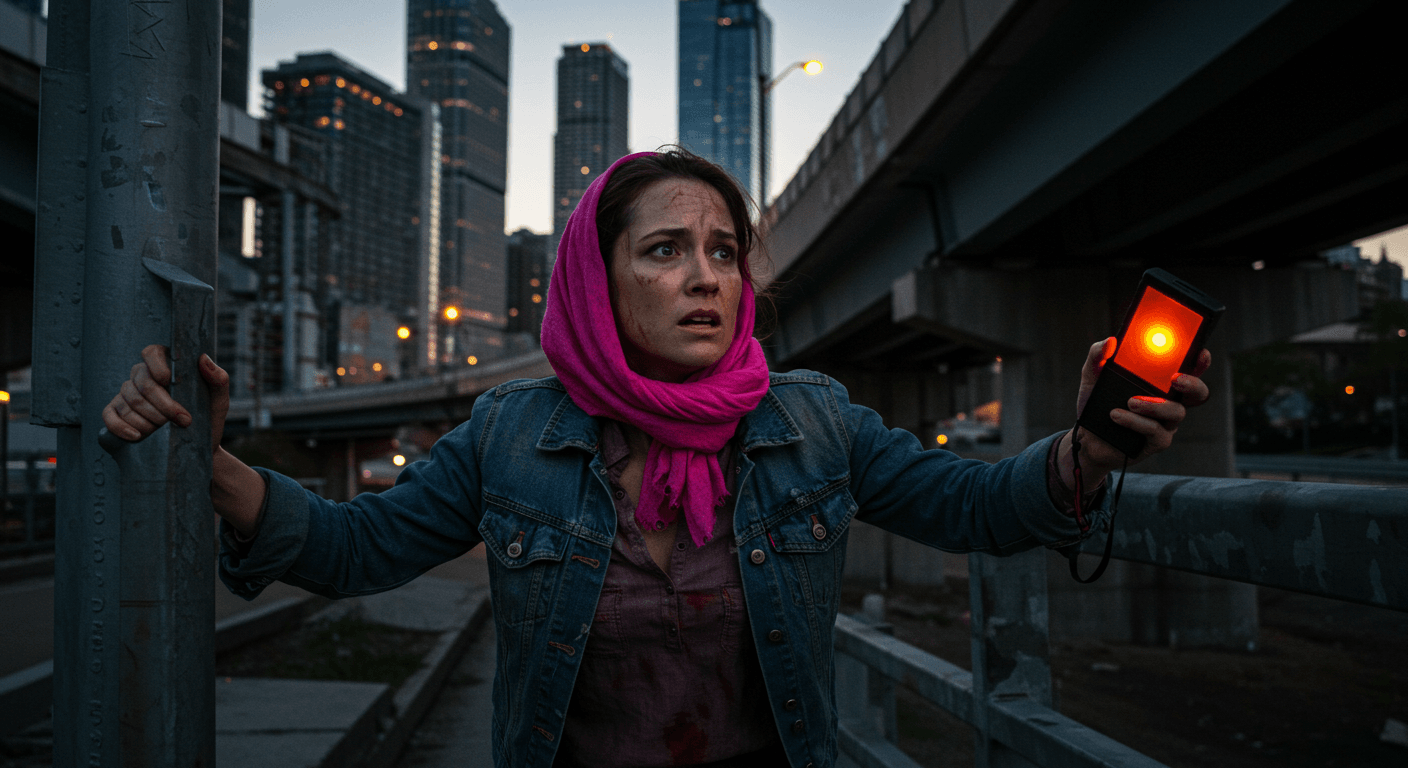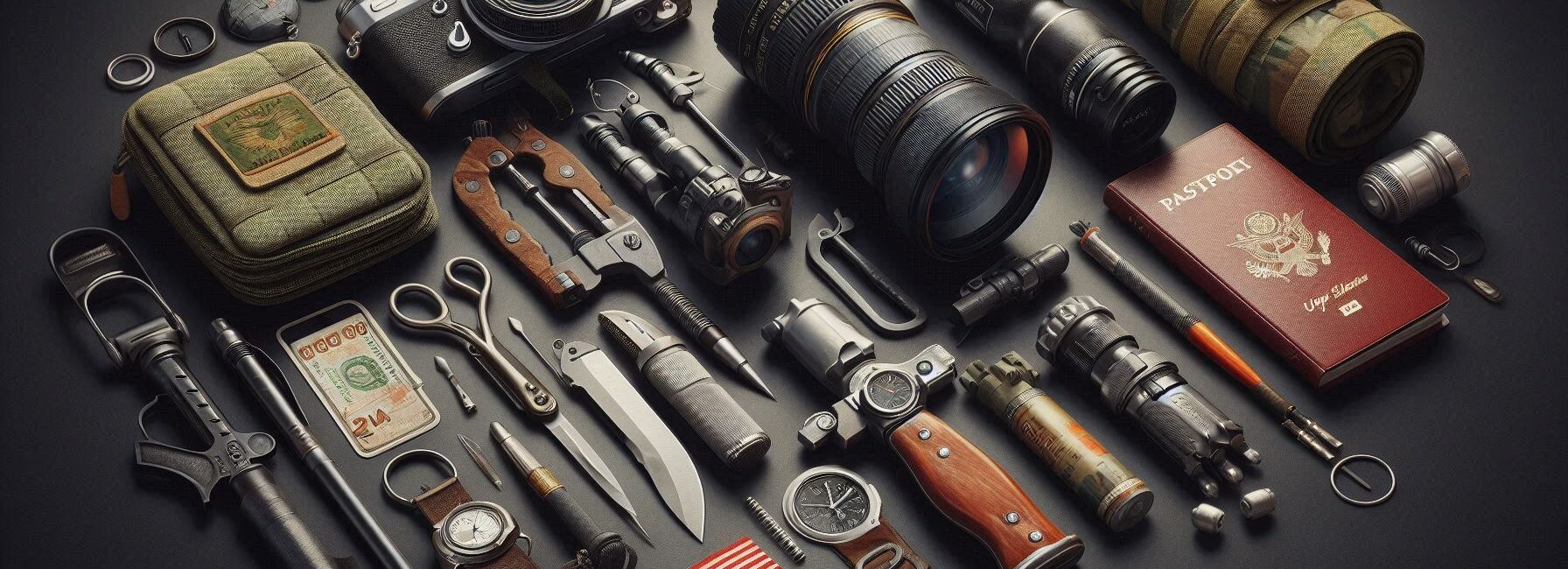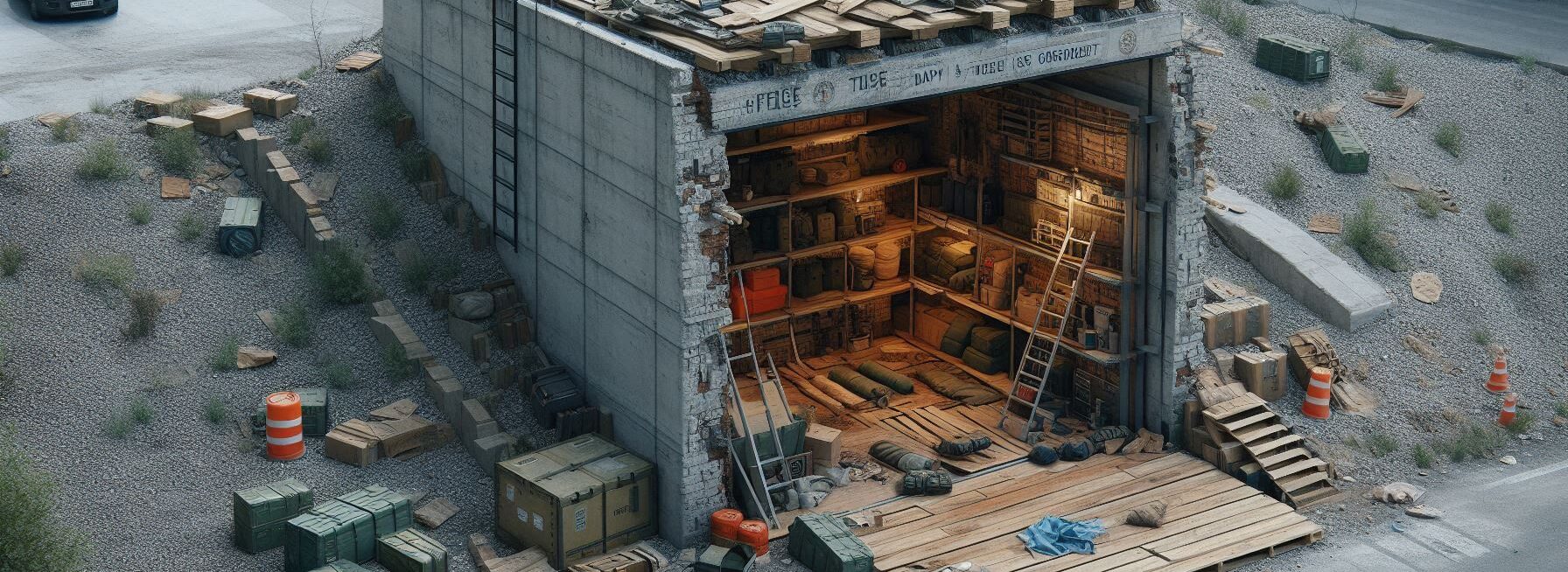Last Updated on November 1, 2025 by Kevin Collier

Top Takeaways and Key Concepts
- Choose a reachable, discreet bug‑out location with multiple escape routes.
- Stock essentials for 72+ hours: water, food, meds, light, and power.
- Blend in: use low‑profile gear, urban clothing, and avoid visible prepper signs.
- Preplan communication and rendezvous points with trusted people and backups.
- Rehearse routes periodically and rotate supplies to maintain readiness.
So, you’re ready to get serious about your bug-out plans. Good for you! Maybe that last grocery trip really opened your eyes. Who knew toilet paper would be like gold, right? It’s wild out there!
Finding a bug-out spot in the city? It’s kinda like a treasure hunt, but for safety. You want a place that feels safe and cozy. Look for a friend’s house, or maybe a hidden spot in a park. You need somewhere close, just in case things get messy.
Please Note: This post may contain affiliate links. If you click one of them, we may receive a commission at no extra cost to you. As an Amazon Associate, I earn from qualifying purchases.
Think about what you’ll need. Grab some supplies. You don’t have to go overboard but packing snacks and water is a great start. Maybe toss in a few fun things too. A deck of cards can make even a scary situation feel less serious.
Map it out. Draw a quick plan. Just like when you trace the route to the snack aisle in the store, it helps to know where you’re going. And pick a meeting spot with friends, too. If everything goes sideways, you want a safe place to regroup.
And don’t forget to laugh along the way. Keep it light. Maybe even make a joke about that time you thought the world would end over a pizza shortage. It helps to ease the nerves.
Setting up your bug-out plans? You’ve got this! Adventure awaits! Just remember, whether it’s toilet paper or snacks, being prepared makes things a little easier.
Choosing the Right Spot

First, let's think about where you are. No, not that expensive condo with a view of the dumpster behind the deli. You want a place that is both private and easy to get to. Your bug-out position should be far away from places where people steal things and heavy traffic, like that corner store that everyone knows sells food.
*** Shop for Survival Gear - Tools - Kits ***
Survival Gear - Bags and Backpacks - Knives - Boots/Footwear - Communication
Outdoor Cooking - Gloves - Hydration - Dry Boxes - Water Filtration Systems
Tents - Sleeping Bags - First Aid Kits - Multi-Tools - Flashlights - Fire Starters
Navigation - Survival Food - Night Vision - Headlamps - Stun Guns - Binoculars
Think about areas like empty buildings or community centers. Just make sure they don't look too good to other people!
If it seems like a good place for other people to hide during an emergency, they will probably get there faster than you can say “survivalist.” I all, who wouldn't want to sleep in an old library? The smell of old books and stale air is almost like a luxury.
Also, think about how close you are to things like food and water. When civilization falls apart and all the posh restaurants close, a secret garden might be your best friend. And let's be honest: I'm going to go crazy if I have to eat another can of beans while sitting on concrete.
Keeping Your Shelter Safe

Once you've picked your area, the most important thing is to keep it safe. You don't want just anyone to come into your hideout and act like they own it! First, make sure that entrances are hard to find but still easy for you and your trusted pals to get to. An open door with a sign that reads “Looters Welcome!” is the opposite of inviting.
Use natural barriers or camouflage techniques instead of neon signs pointing to your stockpile of granola bars. For example, use trees and leaves instead of neon signs. Many cities have parks with lots of trees where you may camp without being seen by nosy neighbors or, even worse, the police!
And don't forget to strengthen what you already have! Old furniture can also be used as barricades, but don't use Grandma's favorite armchair unless you want to deal with family drama when she finds out.
Getting More Supplies

Now comes the fun part: getting all the things you need! It's like getting ready for a really tough camping trip, but you don't get to eat s'mores (unless you have a lot of chocolate). First, get some non-perishable supplies, such canned goods and dried fruits. But don't make them too heavy, or you'll have to carry 50 pounds of spaghetti while attempting to get away from zombies.
Also, think about personal hygiene things because, believe me, no one wants to smell horrible during the end of the world. Toothpaste may not seem like a big deal right now, but think about how much you'll miss the fresh minty taste when brushing becomes a luxury.
Oh, and don't forget the tools! A competent multi-tool can do more than simply open cans. It's like having the Swiss Army knife version of MacGyver in your pocket. And what if things go bad fast? Well, every little bit counts when it comes to staying alive.
Making a Plan to Get Away

Okay, everyone, this isn't just about finding a place to stay. We also need a way out! Picture waking up one morning and finding yourself surrounded by people who think stealing is their new hobby (and not in a fun way). If you plan out more than one way to go somewhere, you are less likely to get stuck like a deer in headlights.
When planning these routes, think about both the main roads (the main roadways) and the side roads (the little alleyways that look dangerous but could save your life). You won't believe how wonderful it is to feel like Jason Bourne when you're driving through back streets to evade danger!
It's interesting that practice makes perfect. Even if it seems absurd at first to execute drills in empty parking lots while wearing tactical gear, it can pay off later!
Making Connections In The Community

Let's be honest: it's hard to live alone, and it's also kind of lonely. Making friends in your community can help you out when things become tough and resources run out faster than ice cream on a hot summer day. So why not get in touch?
You'd be shocked how many individuals have similar interests in being ready when folks start talking over coffee or maybe something stronger if things grow worse!
You can find out who has what abilities available in case of an unanticipated calamity by setting up ways for people to talk to each other ahead of time, like group messages or signal flares.
Asking your neighbors about their intentions might also help you learn about safety nets that are currently in place nearby that could help reduce the risks of urban disasters in the future. After all, it takes collaboration!
Getting Better at Your Skills

Last but not least, it's very crucial that we practice our talents often so that we can rely on them when we need them most, like in an emergency. Think about outdoor activities where things happen spontaneously, like lighting fires without matches or crafting shelters out of things you find. These activities help you develop the reflexes you'll need later.
To be honest? Nothing beats learning by doing and making mistakes, and laughing with friends while trying out new approaches together makes friends like nothing else in the world, even when anarchy is about to happen… Hopefully never, though, right?
Bring your survivalist friends together around the fire. The fire crackling is magical, isn't it? Tell ghost stories that will make everyone laugh and jump a little. Just wait until it gets dark. That's when things start to happen.
It's time to change gears and get ready! Let's go over everything you've learnt thus far. Share your gear, show off your shiny survival knives, or practice putting up a tent in the dark. It might be a little goofy, but it's all in good fun. You can make fun of each other a little bit while you all study.
Do you remember the saying? “An ounce of prevention is worth a pound.” When you talk about being ready for anything, it truly hits home. Picture this: you’re in a wacky situation, and your brain freezes. But hold on! You practiced for times like these.
Enjoy it. You may act like you're running away from a group of ravenous zombies. You could even use flashlights to make things more dramatic! Everyone likes to have fun as they practice. It helps keep things light and not too serious.
Those talents are going to stay with you when the night is over. You'll be ready for everything that comes your way. It's also a great way to spend time with your buddies. Those experiences make memories, which are worth more than anything. It's great to get together, laugh, and learn. Let's get ready and have fun while we do it!
Frequently Asked Questions
How do I choose a good urban bug-out location?
Select a discreet, reachable area with multiple exit routes and access to essentials without drawing attention.
What basic supplies should I store for a city bug-out spot?
Stock at least 72 hours of food, water, light sources, medications, and small power options like batteries or power banks.
Why is blending in important in an urban emergency?
Low-profile clothing and gear reduce the risk of appearing like a target or resource holder to others under stress.
How should I plan communications with trusted people?
Establish backup rendezvous points, prearranged signals, and multiple contact methods to maintain group cohesion.
How often should supplies be rotated?
Check expiration dates routinely and rotate food, medication, and power cells every few months to maintain reliability.
Why should I rehearse bug-out routes?
Rehearsal improves response time and helps you learn alternate paths in case primary routes become unsafe or blocked.
Is it safe to use visible tactical gear in the city?
Visible tactical gear can attract unwanted attention, so neutral clothing and subtle packs help you move unnoticed.
Suggested External Resources:
Survival Blog
https://www.survivalblog.com
The Prepared
https://www.theprepared.com
Urban Survival Site
https://wwwurbansurvivalsite.com
Emergency Essentials
https://www.emergencyessentials.com

Kevin Collier is a seasoned survivalist and expert in prepping and homesteading, contributing to WiseSurvive.com. With a deep-rooted passion for self-sufficiency and outdoor survival skills, Kevin shares practical advice, strategies, and resources to help individuals prepare for any challenge. His informative articles cover a range of topics, from essential survival techniques to sustainable living practices, empowering readers to thrive in any situation. Whether you're a novice or a seasoned prepper, Kevin's insights will inspire you to take charge of your readiness and build resilience for the future.




